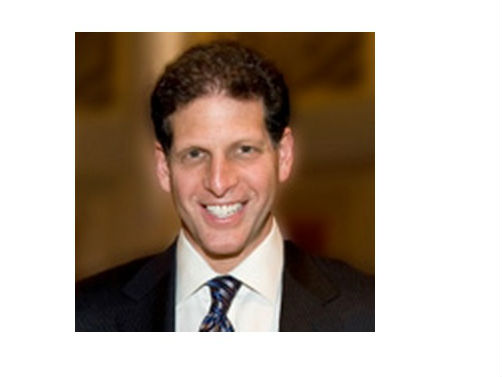Moffett: FCC OTT Reclassification Not 'Huge' Deal
The smarter way to stay on top of the multichannel video marketplace. Sign up below.
You are now subscribed
Your newsletter sign-up was successful

Media analyst Craig Moffett says he doesn't think the FCC's vote to reclassify some over-the-top video providers as MVPDs is a "huge issue" because it is mostly about access to the programming of vertically integrated companies, and one of the biggest is already subject to them. He also says that while the financial community appears to have signaled it can live with Title II, he thinks the forbearance issues around that approach are more complicated than some may think.
MoffetttNathanson partners Moffet and Michael Nathanson were interviewed for C-SPAN's Communicators series, which airs this weekend.
Moffett said he thought reclassification would do is give over-the-top providers access to the program access rules, which means nondiscriminatory access to vertically integrated programming. That, he said, means programming from "Comcast, Comcast, Comcast," plus a handful of companies that own regional sports networks.
A majority of FCC commissioners--the three Democrats--have already approved the item, which was expected to be voted by the Republican commissioners Thursday (Dec. 18), according to one FCC source.
Moffett pointed out that Comcast is already required to make its programming available on nondiscriminatory terms to over-the-top competitors via NBCU deal conditions--which extend until 2018, and likely beyond if the FCC approves the Time Warner Cable merger. "People have talked about it as something of a lifeline for Aereo because it gives them at least a step in the direction of licensing content through retransmission consent from broadcasters, but it doesn't really give them that much negotiating leverage." He said he doesn't really think that FCC reclassification "is really going to change the world."
Moffett said he thinks the impact of the CBS and HBO Internet streaming services will be "somewhat limited," as opposed to a service already delivering OTT video--Netflix--which he says has been "very profound."
But Moffett said media companies can no longer circle the wagons and protect the old ecosystem.
The smarter way to stay on top of the multichannel video marketplace. Sign up below.
Nathanson said that he thought 2014 would go down as a year with the biggest change of any since he has been in the business. Those changes include the AT&T/DirecTV and Comcast/Time Warner Cable mergers, a weakening TV ad business--particularly for an election and Olympic year-- and HBO and CBS, as well as Sony and Dish Network, launching over-the-top distribution to reach customers outside the core bundle.
Moffett talked about "cord cutters," "cord nevers" and "cord shavers," suggesting that shavers were having the biggest impact by taking viewers and ad dollars. But he said the "cord nevers" category is an important one. Those are the millennials that may be Netflix fans now but had been expected to move to pay TV once they started getting older and having children.
He said for the first time media companies are acknowledging they may be wrong, and that if the cord nevers actually stay nevers, traditional media companies are going to have to do something different from just waiting for them to arrive.
Nathanson said he did not think he would see an a la carte programming model anytime soon given the prices that would have to be charged for individual channels. "It is in no one's interest to unbundle channels and go a la carte." He said the only change would come if companies have a regulatory gun to their heads, but they would still have to charge higher prices.
Moffett pointed out that CBS has said it might cost $6 per channel to get channels a la carte rather than as a bundle.
Asked by Bloomberg BNA reporter Lydia Beyoud to weigh in on what the FCC could do to hamper growth in the sector, Nathanson said forced a la carte or wading into retrans reforms could "change the slope of the curve." Moffett said that it would be hard for the FCC to "break the bundle" because he it does not have the authority to do it. He said Title II dwarfs other issues on the distribution side.
Moffett said investors have "largely shrugged off" the risk of Title II, which he said was not a case of those investors thinking that the FCC won't do Title II, but because they think they can live with the risks of Title II. He said he thought the risks were more significant because the questions around forbearance were more complicated.
He said one of the key questions is will transport be free, or will it be a paid service? ISPs are pushing the FCC not to bring interconnection into the net neutrality debate, while Netflix wants it to be addressed in new rules.
Moffett said one of the big questions about the Comcast/TWC merger is whether the FCC will put interconnection conditions on the deal. He said he suspects DOJ may be looking at ways to address market concentration, perhaps through an arbitration requirement on paid interconnection deals. He says that could be a "fulcrum" issue.
He said he thought there would likely be conditions on access to regional sports networks, and perhaps ones from California specifically dealing with Time Warner Cable and access to the Dodgers and Lakers.
He said he was not looking for dramatic conditions, citing FCC Chairman Tom Wheeler's assertion he was not looking to regulate through condition, but instead "regulate through regulation."
Contributing editor John Eggerton has been an editor and/or writer on media regulation, legislation and policy for over four decades, including covering the FCC, FTC, Congress, the major media trade associations, and the federal courts. In addition to Multichannel News and Broadcasting + Cable, his work has appeared in Radio World, TV Technology, TV Fax, This Week in Consumer Electronics, Variety and the Encyclopedia Britannica.

